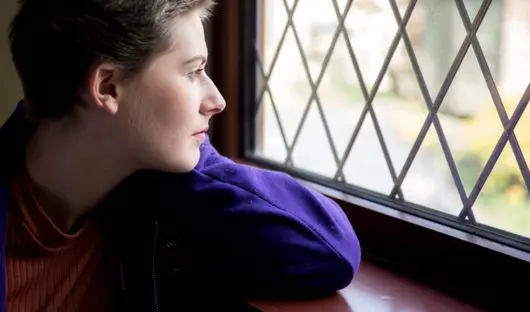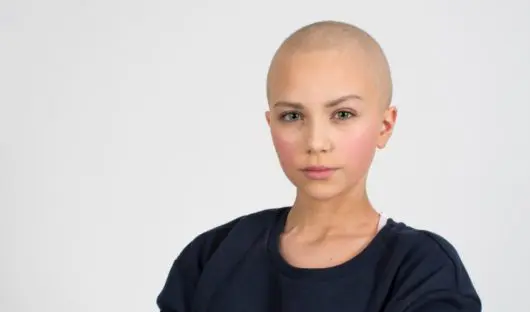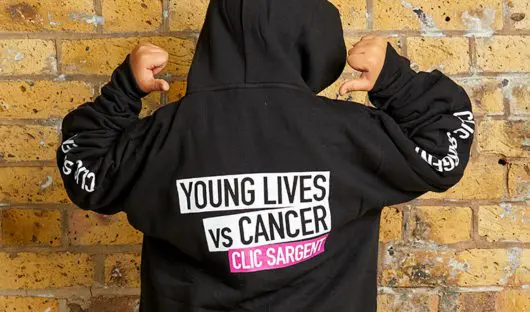Coping with loneliness and isolation with cancer
Cancer can make you feel lonely and isolated. You might be struggling to connect with those close to you or feel like you have no support. It is common to feel this way. But there are things you can do to help with these feelings and we are here to support you every step of the way.
Understanding loneliness and isolation
Loneliness and isolation are not the same thing. Someone might be physically on their own and not feel lonely. But they might feel more vulnerable than usual during their cancer treatment. Someone else could be surrounded by friends and family but feel very lonely. Both can be hard in their own way. But asking for help is the first step.
Loneliness
Everyone feels lonely sometimes. It is a very personal emotion and we all experience it in our own way. You may feel lonelier after a cancer diagnosis. You might feel like no one understands what you are going through. Or you might worry about upsetting people if you are honest about how you really feel.
Loneliness can have a negative impact on your mental health, especially if the feeling lasts a long time. Try to speak to someone about how you are feeling. That might be a friend, sibling, a member of your healthcare team or your Young Lives vs Cancer social worker.
Isolation
Cancer can mean you are more isolated than you were before. If you are tired from treatment, you may be going out less. You might usually like being on your own but now feel more vulnerable. This can lead to feelings of loneliness.
It is okay to ask for help. This could be emotional or practical support. If you do not have friends and family to support you, talk to your Young Lives vs Cancer social worker.
How cancer can make you feel alone
Cancer can make you feel more alone, even if you are surrounded by people who want to help you. This can be for lots of reasons. You might think people do not understand what you are going through. If you are tired from treatment, meeting up with friends can just feel like too much effort.
These feelings are normal. But it is important to remember you are not alone. There are people who want to support you and help you.
Nobody understands what you’re going through
It is common to feel like nobody understands what you are going through after a cancer diagnosis. This might be the first time any of your friends have dealt with a serious illness. You might feel like you have to be brave rather than letting your family know if you are scared or stressed.
Try to be honest about how you are feeling. You might want to pick one person to talk to at first. You will probably find the people in your life want to be there for you but are unsure how best to help. Check out our guide to telling friends about your cancer here.
It can also help to have friends who ‘get it’. You can join one of our Facebook groups to meet other young people living with cancer and have your voice heard.
Friends and family treating you differently
You might find friends and family treat you differently after your cancer diagnosis. They are probably just trying to help. They might not want to bother you with their problems. But it can make you feel lonelier than ever.
Be honest with them about what you need. While it is helpful to talk about your cancer and the impact it is having on you, sometimes you might just want to make small talk. Cancer does not define you and you might need to remind people of that.
Wanting to be left alone
There are lots of reasons why you might want to be left alone. It might be because you want to have control over one thing in your life, because people are acting weird around you or because you are tired from your treatment.
It is fine to take some time to work out how you are feeling on your own. But try not to let yourself become isolated. Tell your friends or family you need some time. It can help to explain why you are feeling that way.
You might be able to have quiet time to reflect without having to be fully on your own. You could try doing a gentle group class like yoga or drawing.
Facing cancer alone
Facing cancer is always hard. But it is even harder if you are on your own. You might usually love your independence but being ill can make you feel lonely and frightened. Then there are the practical worries like getting to and from hospital.
Even if you do not have friends and family to help you, this does not mean you are alone. Your Young Lives vs Cancer social worker can listen to your worries and help you get support.
You should also tell your healthcare team if you live alone. They can make sure you get any extra help you might need.
Diagnosis
Even if you’re used to being independent, being told you have cancer is a lot to deal with. You will be told lots of new information and will probably be more emotional than usual.
If you can, talk to a trusted friend or family member. It can be reassuring to let people know what is going on even if they do not live nearby.
If you do not have friends or family you can talk to, you could join a support group instead. These could be online, like our Facebook groups, or in person. Our partner charities Teens Unite and Alike help young people with cancer connect through support groups, fun events and an app.
Treatment
Understanding your treatment schedule can help you to cope if you live on your own. Set reminders for appointments and times when you should take your medication. You should also make a note of when you are likely to run out of any medications.
Make a list of important numbers on your mobile or next to your home phone. These could be your care team or friends and family.
You may also need to plan for days when you will need more help. Ask your healthcare team if there are times when they would recommend someone stay with you or check in more regularly.
Surgery
If you have surgery you may not be able to do things like lifting or driving for a while. This can be difficult if you live on your own.
You should have a needs assessment before you are discharged from the hospital. Try to be honest with your healthcare team about what you need. This might be dressing changes but also things like shopping or someone to keep you company.
Recovery
There are some practical things you can do to help ease your stress while you are recovering from cancer treatment. Stock up the freezer so you have plenty of supplies. Work out what others could do to help you. It might be housework or picking up prescriptions.
If you do not have friends and family nearby, check if there are any voluntary organisations in your area that offer help for people who live alone.
All clear
Getting the all clear from cancer is a huge relief. But life does not suddenly get back to ‘normal’ once your treatment ends. You might find the emotions hit you harder now than ever before.
It is common to struggle to process what happened to you, or find it hard to get back into old routines. Try to find someone to talk to, whether that is a family member, friend or via a support group.
More advice on how to get back to ‘normal’ after treatment is available here.
How to cope with feeling lonely or isolated
If you are feeling lonely it can be scary to think about opening up. Take it as slowly as you need to. You could start with an online activity where you do not have to talk much like a drawing class. After a while you might feel more confident talking to other people in the class or the tutor.
You can also look at online and in-person support groups. Meeting other people who have been through the same things can help you feel less lonely.
Some people find talking therapies helpful to develop positive ways of dealing with loneliness. If anxiety about social situations has made you feel isolated, cognitive behavioural therapy (CBT) could also help.
Feeling lonely can have a big impact on your wellbeing. Take care of yourself by:
- Trying to get enough sleep
- Eating regular, balanced meals
- Exercising
- Spending time outside
- Spending time with animals
Support groups
Support groups can be a great way to fight feelings of loneliness and isolation. They give you the chance to meet other people who understand what you are feeling.
Some people also find using their own experiences to help others boosts their confidence.
Speak to your care team about in-person support groups local to you. You can also check out our partner charities Teens Unite and Alike which run groups for teenagers and young people.
Online support
Online support groups are a great way to reduce loneliness. They are an easy way to meet up with people across the country who understand what you are going through.
Our Facebook group for over 16s allows you to chat to other young people who have had cancer and make your voice heard. Macmillan Cancer Support has an online community where you can talk to people in chat rooms, blog and join support groups.
There are also online groups for people with loneliness. Mind has an online peer support community, Side by Side.
Staying active
Feeling lonely can have a big impact on your mental health. This can make it harder to make changes to help you feel better. Exercise can be a great way to boost your wellbeing. Some people also find it boosts their self-esteem.
It does not have to be intense. Even going for a walk outside can help raise your mood. If you join a gym or start a team sport you may also meet new people.
Find out more about exercise and cancer here.
Hobbies and interests
If you are feeling lonely in your current social group, it can help to meet new people. Think about what you enjoy. You could join a class based on your current interests. Or you might want to try out a new hobby instead.
Taking part in a joint activity can be a great way to start chatting to new people. If you are unable to attend in person, try online classes instead.
Who to talk to
Talking to other people can help you feel less alone. To start with you can talk to:
- Your family or friends
- Your Young Lives vs Cancer social worker
- Your healthcare team
- People in your support group.
You can also contact support organisations. Mind has a list of useful contacts for dealing with loneliness which you can view here.
If you feel loneliness is having an impact on your mental health you can also talk to your GP.
How Young Lives vs Cancer can support you
Young Lives vs Cancer is here to help you if you are feeling lonely or isolated. You can join one of our Facebook groups or get help from our expert social care team using live chat.
Our social workers are also here to help you will all the challenges cancer can bring.
If you need urgent help, we have a list of contacts and 24-hour support here.
Published July 2023
Next review 2027
You might also want to read

Complementary therapies
Complementary therapies can be used alongside treatment. Here's what you need to know.
Find out more
Cannabis and Cancer
Here's what you need to know about what can be damaging to your health.
Find out more